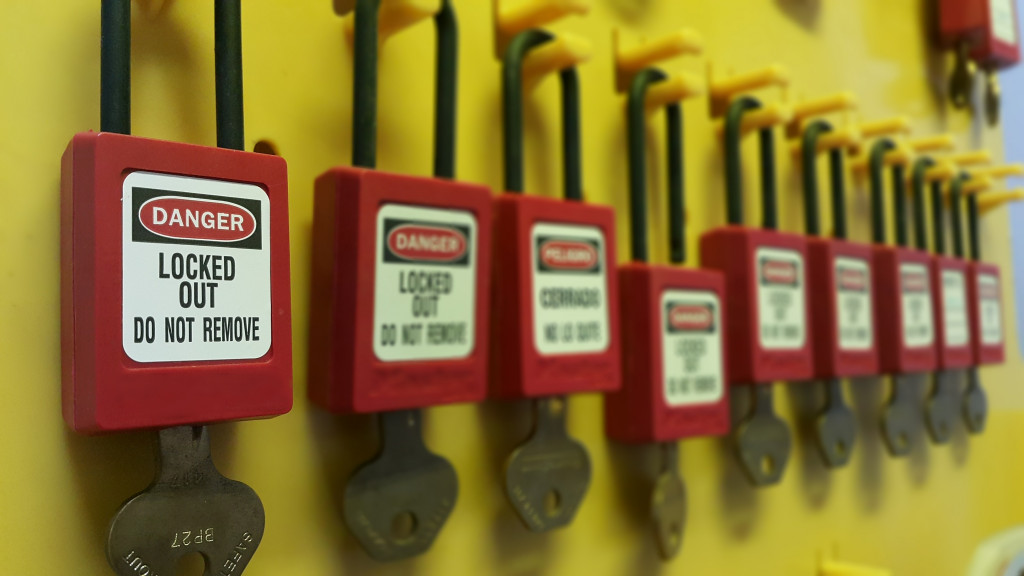- Conduct regular safety training and workshops to educate staff about potential hazards.
- Maintain clean and organized workspace to prevent tripping/accidents.
- Invest in high-quality electrical panels and have them inspected regularly.
- Implement effective fire safety measures such as fire drills, proper storage of flammable materials, and regular electrical inspections.
- Establish an incident reporting and investigation system to identify root causes and improve safety protocols.
Protecting your business from potential risks and hazards is essential for its long-term success and sustainability. Comprehensive safety measures are crucial to safeguard your employees, assets, and operations. This guide will explore five essential safety measures to protect your business to help you create a safe and secure environment for everyone involved.
1. Conduct Regular Safety Training and Workshops
The foundation of a safe workplace begins with well-informed employees. Conduct regular safety training and workshops to educate your staff about potential hazards and the proper safety protocols. Include topics such as fire safety, emergency procedures, handling hazardous materials, and safe lifting techniques. Ensure to keep the training up to date and provide refresher courses as necessary.
Investing in safety training empowers your employees to identify and mitigate risks, ensuring a proactive approach to safety within your organization.
2. Maintain a Clean and Organized Workspace

A clean and organized workspace is aesthetically pleasing and crucial for safety. Encourage your employees to maintain a clutter-free environment and promptly address spills or other potential hazards. Clear walkways and emergency exits to prevent tripping and ensure easy evacuation during emergencies.
Additionally, establish a routine cleaning schedule for shared areas and equipment to prevent the buildup of dirt and debris that could lead to accidents or malfunction.
3. Be Wary of Electrical Hazards
Electrical hazards can disrupt operations and even cause fires or worse. To avoid such risks, utilize high-quality electrical panels that are up to code. Electrical panels will help to protect your business and keep it running safely and efficiently. It will also help you identify potential problems and implement solutions immediately. Be sure to inspect your electrical panels regularly and have an electrician perform maintenance as needed.
4. Implement Effective Fire Safety Measures
Fire safety should be a top priority for every business. Here are some fire safety measures to consider:
Regular Fire Drills

Regular fire drills ensure that all employees are well-versed in the evacuation plan. A well-executed fire drill helps to identify any weak points in the evacuation plan, providing an opportunity to resolve them. Regularly conducted drills also help to reinforce the procedure in everyone’s mind, reducing panic and confusion in case of a real fire emergency.
Proper Storage of Flammable Materials
Proper storage of flammable materials is a critical preventive measure against fire outbreaks. These materials must be stored in cool, dry places away from any heat source. Limiting the amount stored on your premises and providing specific training to employees handling these materials is also essential.
Regular Electrical Inspections
Faulty wiring and electrical malfunctions form a significant cause of fire mishaps. Regular electrical inspections ensure that any faulty equipment or wiring is identified and rectified promptly. This proactive measure reduces the fire risk caused by an electrical fault.
Awareness and Training Programs
Lastly, a comprehensive fire safety measure includes regular employee awareness and training programs. These programs help educate employees about potential fire hazards, preventive measures, and appropriate responses in case of a fire. Such training prepares employees to react correctly during a fire emergency, possibly saving lives and reducing property damage.
5. Establish an Incident Reporting and Investigation System
Encourage a culture of safety by establishing an incident reporting and investigation system. Encourage employees to report near-misses and accidents and investigate each incident thoroughly to identify the root cause and implement necessary preventive measures.
Use incident reports as a learning opportunity to continuously improve safety protocols and reduce the likelihood of future accidents. Foster open communication and transparency so employees feel comfortable reporting safety concerns without fear of reprisal.
In addition to incident reports, use safety audits to ensure that all safety protocols and procedures are followed properly. During a safety audit, check protective equipment for proper fit and function, review training records and materials, conduct interviews with employees, and observe their work practices. Audits should be conducted periodically so any emerging issues can be addressed immediately.
In Summary
Protecting your business requires a proactive and comprehensive approach to safety. By conducting regular safety training, maintaining a clean workspace, investing in high-quality electrical panels, implementing effective fire safety measures, and establishing an incident reporting system, you can create a safe and secure environment for your employees and your business. Remember that safety is an ongoing process that requires commitment and dedication from everyone involved. You protect your assets by prioritizing safety and promoting a positive and thriving work environment.







